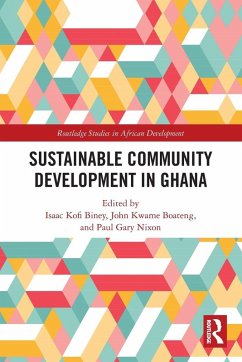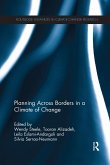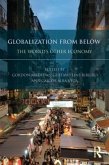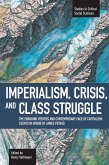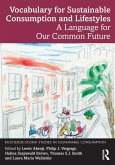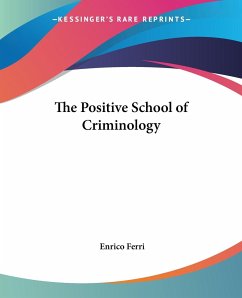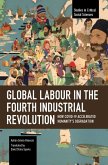Sustainable Community Development in Ghana
Herausgeber: Biney, Isaac Kofi; Nixon, Paul Gary; Kwame Boateng, John
Sustainable Community Development in Ghana
Herausgeber: Biney, Isaac Kofi; Nixon, Paul Gary; Kwame Boateng, John
- Broschiertes Buch
- Merkliste
- Auf die Merkliste
- Bewerten Bewerten
- Teilen
- Produkt teilen
- Produkterinnerung
- Produkterinnerung
This book explores sustainable community development in Ghana post Covid-19, highlighting examples of how individuals facing extreme challenges have adapted to their changing circumstances.
Andere Kunden interessierten sich auch für
![Planning Across Borders in a Climate of Change Planning Across Borders in a Climate of Change]() Planning Across Borders in a Climate of Change58,99 €
Planning Across Borders in a Climate of Change58,99 €![Globalization from Below Globalization from Below]() Globalization from Below59,99 €
Globalization from Below59,99 €![Imperialism, Crisis and Class Struggle Imperialism, Crisis and Class Struggle]() Henry VeltmeyerImperialism, Crisis and Class Struggle30,99 €
Henry VeltmeyerImperialism, Crisis and Class Struggle30,99 €![Vocabulary for Sustainable Consumption and Lifestyles Vocabulary for Sustainable Consumption and Lifestyles]() Vocabulary for Sustainable Consumption and Lifestyles53,99 €
Vocabulary for Sustainable Consumption and Lifestyles53,99 €![The Positive School of Criminology The Positive School of Criminology]() Enrico FerriThe Positive School of Criminology12,99 €
Enrico FerriThe Positive School of Criminology12,99 €![Walking the Bowl Walking the Bowl]() Chris LockhartWalking the Bowl17,99 €
Chris LockhartWalking the Bowl17,99 €![Global Labour in the Fourth Industrial Revolution Global Labour in the Fourth Industrial Revolution]() Adrián Sotelo ValenciaGlobal Labour in the Fourth Industrial Revolution25,99 €
Adrián Sotelo ValenciaGlobal Labour in the Fourth Industrial Revolution25,99 €-
-
-
This book explores sustainable community development in Ghana post Covid-19, highlighting examples of how individuals facing extreme challenges have adapted to their changing circumstances.
Produktdetails
- Produktdetails
- Verlag: Routledge
- Seitenzahl: 328
- Erscheinungstermin: 27. Oktober 2025
- Englisch
- Abmessung: 234mm x 156mm x 18mm
- Gewicht: 500g
- ISBN-13: 9781032431840
- ISBN-10: 1032431849
- Artikelnr.: 75425546
- Herstellerkennzeichnung
- Libri GmbH
- Europaallee 1
- 36244 Bad Hersfeld
- gpsr@libri.de
- Verlag: Routledge
- Seitenzahl: 328
- Erscheinungstermin: 27. Oktober 2025
- Englisch
- Abmessung: 234mm x 156mm x 18mm
- Gewicht: 500g
- ISBN-13: 9781032431840
- ISBN-10: 1032431849
- Artikelnr.: 75425546
- Herstellerkennzeichnung
- Libri GmbH
- Europaallee 1
- 36244 Bad Hersfeld
- gpsr@libri.de
Isaac Kofi Biney is an associate professor of Adult Education and Community Development at the University of Ghana, Legon, Ghana. John Kwame Boateng is an associate professor of Development Education and Human Resource Studies, University of Ghana, Legon, Ghana. Paul Gary Nixon is an independent researcher at The Hague, The Netherlands.
Introduction: Sustainable community development: Examining the Ghanaian situation PART I Community response to COVID
19 and the SDGs 1 Engendering sustainable communities during and post
COVID
19 pandemic: Experiences from Ghana 2 Community response to COVID
19 pandemic and the future of global health: A model to support higher education partnership PART II Education, COVID
19 and the SDGs 3 Community mobile teaching and learning applications during COVID
19: Review of the experiences of some religious groups in Ghana 4 Higher education institutions and the United Nations' sustainable development goals: The University of Ghana experience 5 Happiness in online communities: Service quality and students' satisfaction in online education delivery in a Ghanaian University 6 A critical assessment of non
formal education as a strategic tool for enhancing district assembly women's participation in local governance in the Northern sector of Ghana 7 Closing the gap: Distance education to empowerment of nursing students in Ghana through the self
determination theory 8 E
learning laws and principles quarantined by COVID
19: Emerging 'un'sustainable practices of 'new' e
learning laws in higher education 9 Competencies and capabilities of local and traditional leaders in Ghana: Examining the nexus of continuing education for community development PART III Environmental sustainability and the SDGs 10 Climate change knowledge, attitudes and adaptation among households in three major agröecological zones of Ghana: Implications for climate change education and sustainable development 11 Plastic waste recycling in Ghana: Understanding the sources and the value chain 12 Climate change adaptation practices in two rural communities in Ghana PART IV Sustainable livelihoods, aid and community development 13 Experiences of young vendors engaged in informal entrepreneurship during COVID
19 pandemic in Ghana 14 Impact of COVID
19 on sustainable livelihoods and community development through SDGs in Kenya 15 Intricacies of foreign aid to Ghana
19 and the SDGs 1 Engendering sustainable communities during and post
COVID
19 pandemic: Experiences from Ghana 2 Community response to COVID
19 pandemic and the future of global health: A model to support higher education partnership PART II Education, COVID
19 and the SDGs 3 Community mobile teaching and learning applications during COVID
19: Review of the experiences of some religious groups in Ghana 4 Higher education institutions and the United Nations' sustainable development goals: The University of Ghana experience 5 Happiness in online communities: Service quality and students' satisfaction in online education delivery in a Ghanaian University 6 A critical assessment of non
formal education as a strategic tool for enhancing district assembly women's participation in local governance in the Northern sector of Ghana 7 Closing the gap: Distance education to empowerment of nursing students in Ghana through the self
determination theory 8 E
learning laws and principles quarantined by COVID
19: Emerging 'un'sustainable practices of 'new' e
learning laws in higher education 9 Competencies and capabilities of local and traditional leaders in Ghana: Examining the nexus of continuing education for community development PART III Environmental sustainability and the SDGs 10 Climate change knowledge, attitudes and adaptation among households in three major agröecological zones of Ghana: Implications for climate change education and sustainable development 11 Plastic waste recycling in Ghana: Understanding the sources and the value chain 12 Climate change adaptation practices in two rural communities in Ghana PART IV Sustainable livelihoods, aid and community development 13 Experiences of young vendors engaged in informal entrepreneurship during COVID
19 pandemic in Ghana 14 Impact of COVID
19 on sustainable livelihoods and community development through SDGs in Kenya 15 Intricacies of foreign aid to Ghana
Introduction: Sustainable community development: Examining the Ghanaian situation PART I Community response to COVID
19 and the SDGs 1 Engendering sustainable communities during and post
COVID
19 pandemic: Experiences from Ghana 2 Community response to COVID
19 pandemic and the future of global health: A model to support higher education partnership PART II Education, COVID
19 and the SDGs 3 Community mobile teaching and learning applications during COVID
19: Review of the experiences of some religious groups in Ghana 4 Higher education institutions and the United Nations' sustainable development goals: The University of Ghana experience 5 Happiness in online communities: Service quality and students' satisfaction in online education delivery in a Ghanaian University 6 A critical assessment of non
formal education as a strategic tool for enhancing district assembly women's participation in local governance in the Northern sector of Ghana 7 Closing the gap: Distance education to empowerment of nursing students in Ghana through the self
determination theory 8 E
learning laws and principles quarantined by COVID
19: Emerging 'un'sustainable practices of 'new' e
learning laws in higher education 9 Competencies and capabilities of local and traditional leaders in Ghana: Examining the nexus of continuing education for community development PART III Environmental sustainability and the SDGs 10 Climate change knowledge, attitudes and adaptation among households in three major agröecological zones of Ghana: Implications for climate change education and sustainable development 11 Plastic waste recycling in Ghana: Understanding the sources and the value chain 12 Climate change adaptation practices in two rural communities in Ghana PART IV Sustainable livelihoods, aid and community development 13 Experiences of young vendors engaged in informal entrepreneurship during COVID
19 pandemic in Ghana 14 Impact of COVID
19 on sustainable livelihoods and community development through SDGs in Kenya 15 Intricacies of foreign aid to Ghana
19 and the SDGs 1 Engendering sustainable communities during and post
COVID
19 pandemic: Experiences from Ghana 2 Community response to COVID
19 pandemic and the future of global health: A model to support higher education partnership PART II Education, COVID
19 and the SDGs 3 Community mobile teaching and learning applications during COVID
19: Review of the experiences of some religious groups in Ghana 4 Higher education institutions and the United Nations' sustainable development goals: The University of Ghana experience 5 Happiness in online communities: Service quality and students' satisfaction in online education delivery in a Ghanaian University 6 A critical assessment of non
formal education as a strategic tool for enhancing district assembly women's participation in local governance in the Northern sector of Ghana 7 Closing the gap: Distance education to empowerment of nursing students in Ghana through the self
determination theory 8 E
learning laws and principles quarantined by COVID
19: Emerging 'un'sustainable practices of 'new' e
learning laws in higher education 9 Competencies and capabilities of local and traditional leaders in Ghana: Examining the nexus of continuing education for community development PART III Environmental sustainability and the SDGs 10 Climate change knowledge, attitudes and adaptation among households in three major agröecological zones of Ghana: Implications for climate change education and sustainable development 11 Plastic waste recycling in Ghana: Understanding the sources and the value chain 12 Climate change adaptation practices in two rural communities in Ghana PART IV Sustainable livelihoods, aid and community development 13 Experiences of young vendors engaged in informal entrepreneurship during COVID
19 pandemic in Ghana 14 Impact of COVID
19 on sustainable livelihoods and community development through SDGs in Kenya 15 Intricacies of foreign aid to Ghana

